What Emergency Type Devices Should A Person With Parkinsons Disease With Speech And Voice Problems Have At Hand
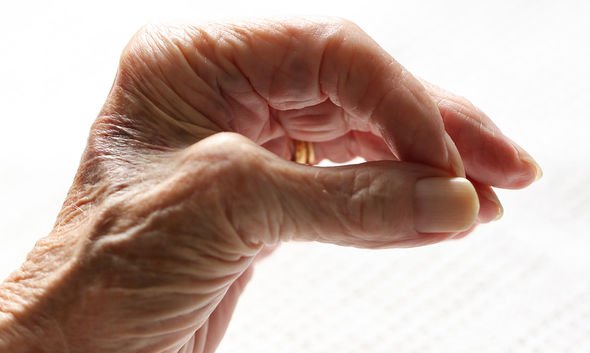
To preparing for emergencies:
- Use an intercom system or baby monitor to alert others that there is an emergency.
- Use bells or buzzers if you are not able to speak. Use “codes” that signify urgency. For example, a tinkling bell might mean, “I’d like company,” while an air horn might mean there’s an emergency.
- Carry a cell phone that is equipped with pre-programmed numbers. Preprogram all of your telephones so they can automatically dial the necessary emergency number.
- Sign up for a “Life Call” button service if you spend time alone. Pressing a button on a device usually worn on the wrist or around neck signals a service company that alerts loved ones and/or your local emergency service.
What Type Of Healthcare Professional Helps People With Speech Problems From Parkinsons Disease
If you have speech and voice problems, see a speech-language therapist. Your primary healthcare provider can help you find a therapist in your local area. Some speech-language pathologists have specialized training that focuses on training people with Parkinson’s disease to amplify their voice. This is called the Lee Silverman Voice Treatment.
Speech-language therapists are specifically trained to diagnose and treat speech, language and swallowing disorders. If you have Parkinson’s disease, a speech-language pathologist can help you:
- Maintain as many communication skills as possible. Teach you techniques to conserve energy, including using nonverbal communication skills.
- Introduce you to assistive devices and techniques to help improve your communication.
- Recommend exercises to help you improve muscle strength and movements needed to improve your speech and communication options.
What Alternative Communication Devices And Tips Can Help With My Voice And Speech Problems
If you have difficulty speaking, are frustrated and stressed by your inability to communicate or tire from the efforts to speak, consider the following devices and methods to be better understood:
- Amplification: This could be a portable personal amplifier or a telephone amplifier that can be used to increase vocal loudness in soft-spoken people. The amplifier also decreases voice fatigue.
- TTY telephone relay system: This is a telephone equipped with a keyboard so speech can be typed and read by a relay operator to the listener. Either the whole message can be typed or just the words that are not understood.
- Low-technology devices: Paper-based books and boards, alphabet boards and typing devices are examples of low technology assistive methods.
- High-technology electronic speech enhancers, communication devices: Computers with voice synthesizers and speech generating devices are available. Talk to a speech-language pathologist about the available high technology devices best suitable for your needs.
If I Have Parkinsons Disease What Kind Of Speech And Voice Problems May I Experience
If you have Parkinson’s disease, some of the voice and speech difficulties seen include:
- Softened voice. Reduced volume to your voice.
- Speaking in an unchanging pitch .
- Having a hoarse or strained quality to your voice.
- Having a breathiness to your voice. Breathiness in the quality of your voice that is easily heard by your listeners. It takes more effort and energy to speak. You “run out of gas” as you speak.
- Trouble clearly and easily pronouncing letters and words.
- Tremor in your voice.
- Using short rushes of speech.
- Loss of your facial expression.
If you have Parkinson’s disease, you may not be aware of the problems with your spoken communication. Changes in the quality of your voice may be the first sign of speech problems followed by the inability to have fluid speech and clear and distinct speech sounds. Speech problems that are severe enough to reduce your ability to be easily understood usually do not occur until later in the course of Parkinson’s disease.
If I Have Speech And Voice Problems How Can I Maintain And Improve My Communication
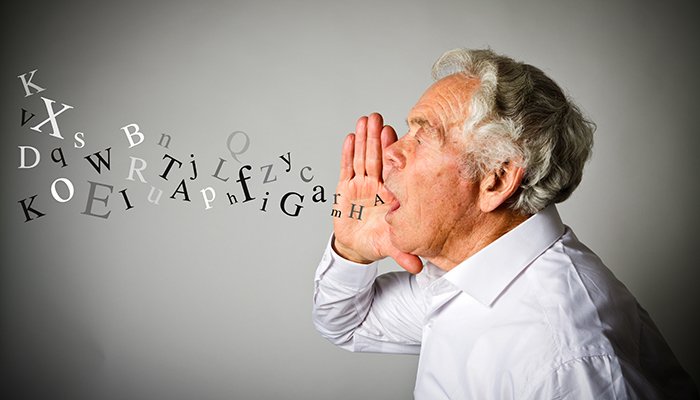
Some tips to improve communication include:
- Choose a quiet, low-noise space. Turn off televisions, radios and other devices that create noise.
- Speak slowly.
- Make sure your listener can see your face. Look at the person while you are talking. A well-lit room improves face-to-face conversation, increasing the ability to be understood.
- Use short phrases. Say one or two words or syllables per breath.
- Plan periods of vocal rest before planned conversations or phone calls. Know that fatigue significantly affects your ability to speak. Techniques that work in the morning might not work later in the day.
- Keep your throat hydrated. Drink plenty of water. Don’t drink caffeinated or alcoholic beverages. Use a humidifier if the air in your home is dry.
- Keep an upright posture, straight chin, slightly lifted neck to improve airflow from lungs to your vocal cords.
- If you are soft spoken and your voice has become low, consider using an amplifier.
If some people have difficulty understanding you, these additional strategies might help:
How Can Listeners Help People Who Have Difficulty Speaking And Communicating
Here are some ways friends and family of people with Parkinson’s disease can ease speaking and communication difficulties:
- Talk to the person with Parkinson’s disease face-to-face only, and look at the person as he or she is speaking.
- Ask questions that require a simple “yes” or “no” answer.
- Repeat the part of the sentence that you understood.
- Ask the person to repeat what he or she said, to speak more slowly or spell out the words you did not understand.
Do Swallowing Problems In People With Parkinsons Disease Also Affect Speech
Swallowing problems are a common problem in people with Parkinson’s disease. They can occur at any stage of the disease, can change throughout the disease course and often get worse as symptoms progress. Let your healthcare provider and/or speech-language pathologist know as you notice you are having swallowing problems. Symptoms of swallowing problems include drooling, choking, coughing, difficulty taking pills, taking a long time to eat, weight loss and dehydration. The most serious complication of a swallowing problem–and the reason why you should see your provider right away– is aspiration. Aspiration is when food or liquid goes into your windpipe , then passes down into your lungs, which can lead to aspiration pneumonia.
Although swallowing problems may not directly affect your speech, swallowing problems and voice and speech problems often occur at the same time.
A note from Cleveland Clinic
Voice and speech difficulties are common problems in people with Parkinson’s disease, especially as the disease worsens. These problems affect your ability to communicate in the work setting and with family and friends – which affects the quality of your life. Fortunately a speech-language pathologist can develop an effective treatment program to help improve your ability to communicate.
##
Davis Phinney And Kelsey Phinney Practice Vocal Exercises For Parkinson’s
In this 23-minute episode of The Parkinson’s Podcast, Davis Phinney and his daughter and podcast host, Kelsey Phinney, practice and explain some vocal warmup exercises before Davis sings a few pop songs. Davis’s voice gets louder and clearer over the course of the session and is a good demonstration of the benefit of speech therapy and daily practice of speech exercises, including singing, for those with Parkinson’s.
Four-minute video features Michael S. Okun, MD.
Muhammad Alis Speech Started Slurring Years Before Parkinsons Diagnosis
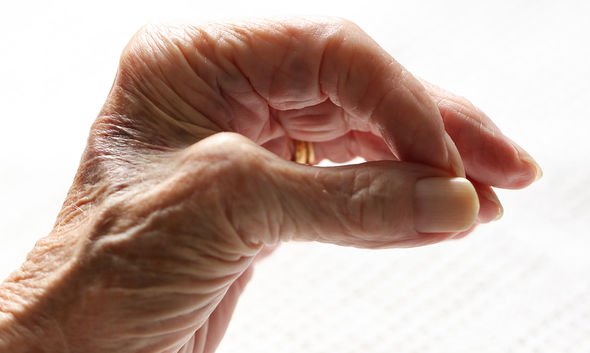
Muhammad Ali was a famous—and poetic—trash-talker. But several years before the boxing legend was diagnosed with Parkinson’s disease at age 42, his speech began to slow and slur, according to a new study reported on by ESPN. In the research presented today at the Interspeech 2017 conference, speech scientists analyzing archival footage found that from the age of 26 to 39, Ali’s rate of speech—measured in syllables per second—slowed by 26%, and that he was slurring words a full 3 years before diagnosis. Such symptoms in patients with full-blown Parkinson’s are well-known, but the researchers say Ali’s case shows the need for more long-term speech studies of people at risk of the neurodegenerative disorder.
Linda Ronstadt Ozzy Osbourne And Muhammad Ali Are Just Some Of The Well
Parkinson’s disease is a neurodegenerative condition caused by the loss of dopamine-producing neurons in the brain, which leads to various neurological and mobility-related symptoms. The Parkinson’s Foundation estimates the number of people living with Parkinson’s at 1 million in the United States alone, with over 10 million cases worldwide.
In January 2020, Ozzy Osbourne became the latest public figure to announce a Parkinson’s diagnosis, helping to raise the profile of this little-understood neurological condition. Read on to learn more about how other celebrities living with Parkinson’s disease have managed their condition and the work they’ve done to raise awareness.
Speech And Language Therapy For Speech Problems In Parkinson’s Disease
Many people with Parkinson’s disease suffer from disorders of speech. The most frequently reported speech problems are weak, hoarse, nasal or monotonous voice, imprecise articulation, slow or fast speech, difficulty starting speech, impaired stress or rhythm, stuttering and tremor. People with the condition also tend to give fewer non-verbal cues, such as facial expressions and hand gestures. These disabilities tend to increase as the disease progresses and can lead to serious problems with communication.
This review compared the benefits of speech and language therapy versus placebo or no treatment for speech disorders in Parkinson’s disease. Relevant trials were identified by electronic searches of 16 medical literature databases, various registers of clinical trials and an examination of the reference lists of identified studies and other reviews.
Only randomised controlled trials were included in this review. These were studies where two groups of patients were compared, one group had speech and language therapy, the other did not receive any therapy intended to improve speech. The patients were assigned to each of the groups in a random fashion so as to reduce the potential for bias.
To compare the efficacy of speech and language therapy versus placebo or no intervention for speech and voice problems in patients with Parkinson’s disease.
Only randomised controlled trials of speech and language therapy versus placebo or no intervention were included.
Building Stronger Caregiving Partnerships Through Better Communication
In this one-hour talk, the speaker explains that diminished communication significantly impacts the social, emotional and physical burdens of caregiving. The fourth speaker at the Parkinson’s Foundation Caregiver Summit, Angela Roberts, PhD, explains how changes in speech, cognition and hearing due to Parkinson’s disease affects communication. She then offers specific strategies for optimizing communication.
Speaking Effectively A Strategic Guide For Speaking And Swallowing
Booklet includes self-evaluations and caregiver surveys to determine at what point professional help is needed. Professional examinations are described along with recommendations for both home and professional intervention to improve speech, make eating easier and safer, and reduce drooling. Maintaining communication to reduce isolation is encouraged.
What Devices Can Help Speech For Those With Parkinson’s Disease
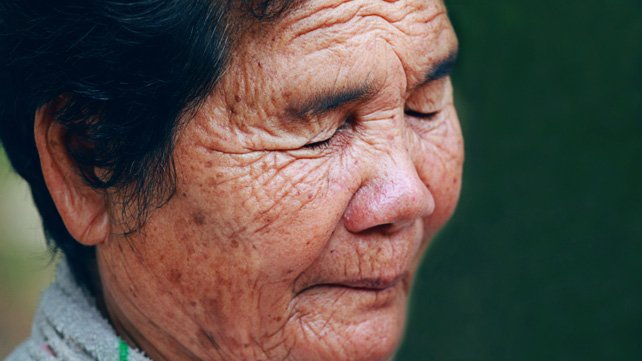
Here’s a sample of the devices that are available to help people with Parkinson’s disease communicate more clearly.
Palatal lift. A dental apparatus that is similar to a retainer. It lifts the soft palate and stops air from escaping out of the nose during speech.
Amplification. A personal amplifier can be used to increase the volume of the voice. The amplifier also decreases voice fatigue.
TTY telephone relay system. A telephone equipped with a keyboard so speech can be typed and read by a relay operator to the listener. Either the whole message can be typed or just the words that are not understood can be typed.
Low technology devices. Notebooks and language boards can be used as alternative communication techniques.
High technology electronic speech enhancers, communication devices. Computers with voice synthesizers and dedicated communication devices are available.
If you are interested in purchasing an electronic communication aid discuss this with your speech therapist before contacting sales representatives for these devices.
Doctor Who Diagnosed Muhammad Ali With Parkinsons Speaks Out
June 10, 2016 / 6:56 PM / CBS News
Fighter was diagnosed with condition in 198401:57
NEW YORK — The biggest fight of Muhammad Ali‘s life was his battle with Parkinson’s disease. To the trained eye, signs were apparent even as Ali was at the pinnacle of his career.
It was a thing of beauty: the Ali shuffle, a blur of movement that befuddled opponents and delighted fans. Years later, it morphed into a shuffling gait — a classic sign of Parkinson’s.
Thousands gather to say goodbye to the “great…02:23
And the “Louisville lip” gave way to silence.
Dr. Stanley Fahn, a neurologist specializing in Parkinson’s, was the first doctor to diagnose his condition. It was 1984.
“It was a slowness of movement that was his limiting factor at that time,” Fahn told CBS News. “I saw immediately he had a masked face, that is, decreased expression. He had decreased blinking, and he had a typical Parkinson’s tremor.”
Parkinson’s is most common in older adults. Ali was only 42.
Linda Ronstadt: Parkinson’s Took Her Voice But Not Her Spirit
Known for her rich soprano vocals as the lead singer of the 1960s band the Stone Poneys, Linda Ronstadt opened up about her Parkinson’s disease diagnosis to AARP The Magazine in 2013. After two very bad tick bites in the 1980s, Ronstadt says her health never fully recovered — but she didn’t visit a neurologist until she was no longer able to sing.
Muhammad Alis Greatest Fight Was Against Parkinsons Disease
Muhammad Ali : Parkinsons And A Courageous Life Journey
Treating Speech And Language Problems In Parkinsons Disease
Potential treatments for speech and language problems of PD include medication, behavioral therapies, and surgery. The most recent assessments of these therapies suggest, however, that surgery is not effective for speech problems, although it may improve some of the severe motor problems of PD. In addition, there are no medication therapies that are effective when used alone.
Treating the basic motor problems of PD optimally appears to be a prerequisite for improving speech problems. That is, if the PD motor problems are untreated, the speech problems do not respond well to behavioral treatments. PD medication is, therefore, necessary but not sufficient. In short, the optimal treatment strategy for speech and language problems of PD appears to be a combination of PD medication plus some form of behavioral speech therapy.
What Are The Primary Motor Symptoms Of Parkinsons Disease
There are four primary motor symptoms of Parkinson’s disease: tremor, rigidity, bradykinesia and postural instability . Observing two or more of these symptoms is the main way that physicians diagnose Parkinson’s.
It is important to know that not all of these symptoms must be present for a diagnosis of Parkinson’s disease to be considered. In fact, younger people may only notice one or two of these motor symptoms, especially in the early stages of the disease. Not everyone with Parkinson’s disease has a tremor, nor is a tremor proof of Parkinson’s. If you suspect Parkinson’s, see a neurologist or movement disorders specialist.
Tremors
Read more about Parkinson’s tremors
Rigidity
Bradykinesia
mask-like expression of the face
Postural Instability
Walking or Gait Difficulties
Dystonia
Vocal Symptoms
People With Parkinsons Disease Found A Champion In Ali

To the patients at the Muhammad Ali Parkinson Center in Phoenix, Arizona, which Ali helped establish and fund, he was more than just a boxing champion or a cultural icon. Ali was the face of their own struggle against the disease, which has no known cure. In the video below, patients described how Ali’s example inspired them to continue pressing on with therapy and their own self-care in the midst of an ever-progressing disease.
“He’s such a fighter — not just in the ring but in his life,” said one woman in the video. “It’s an inspiration to us all.”
“I had no idea how much of a difference Muhammad Ali would make in my life,” a man added. “Now that I have Parkinson’s disease, his generosity has been a blessing for me, personally.”
The Alis also joined forces with Michael J. Fox, another celebrity with Parkinson’s disease, to raise money and appear before Congress in 2002 to advocate for research funding. In her testimony before lawmakers, Lonnie Ali spoke on behalf of her husband when she called the disease the fight of his life.
“Parkinson’s recognizes no titles, respects no achievements, nor bows to any amount of talent, courage or character. Parkinson’s does not discriminate,” she said. “There is no question that Parkinson’s is the fight of Muhammad’s life.”
Ali was diagnosed with the condition in 1984 at the age of 42. The average age of diagnosis is 60, but it can span from the 20s all the way up to the 80s.
Muhammad Ali’s Long Struggle With Parkinson’s Disease
The Relationship Between Parkinsons Disease And Sleep
It’s unclear whether poor sleep causes parkinsonian symptoms to worsen or whether worsening parkinsonian symptoms cause poor sleep. In many cases it’s likely a case of bidirectionality, with each one exacerbating the other.
Fragmented sleep and sleep deprivation appear to leave the brain more vulnerable to oxidative stress, which has been tied to the development of Parkinson’s disease. Parkinson’s disease is not usually diagnosed until individuals have developed sufficient motor symptoms, by which time a significant portion of brain cells have already been damaged. If poor sleep quality or having sleep disorders foreshadows the development of parkinsonian symptoms, these could be useful in early diagnosis of the disease.
More research is needed to clarify the multifaceted relationship between Parkinson’s disease and sleep. A better understanding of this connection may offer medical experts the unique opportunity to screen at-risk individuals and perhaps delay the onset of the disease.
How Can I Improve My Speech With Parkinson’s Disease
Speech-language pathologists can help people with Parkinson’s disease maintain as many communication skills as possible. They also teach techniques that conserve energy, including non-verbal communication skills. Speech-language pathologists are also available to:
- Recommend appropriate communication technologies that will help with daily activities.
- Treat all types of speech, language, and communication problems.
- Evaluate swallowing function and recommend changes as necessary.
What If I Have An Emergency How Will I Communicate
- Use an intercom system or baby monitor to alert others that there is an emergency.
- Use bells or buzzers if you are not able to speak. Use “codes” that signify urgency. For example, a tinkling bell may mean, “I’d like company” while an air-horn means there’s an emergency.
- Carry a portable phone that is equipped with pre-programmed numbers.
- Pre-program all of your telephones so they can automatically dial the necessary emergency number.
- Consider a “life call” button if you spend time alone.
Fighter And Thinker: The Two Sides Of Muhammad Ali

Born Cassius Marcellus Clay on Jan. 17, 1942 in Louisville, Kentucky, to middle-class parents, Ali started boxing when he was 12, winning Golden Gloves titles before heading to the 1960 Olympics in Rome, where he won a gold medal as a light heavyweight.
He turned professional shortly afterward, supported at first by Louisville business owners who guaranteed him an unprecedented 50-50 split in earnings. His knack for talking up his own talents — often in verse — earned him the dismissive nickname “the Louisville Lip,” but he backed up his talk with action, relocating to Miami to work with top trainer Angelo Dundee and build a case for getting a shot at the heavyweight title.
As his profile rose, Ali acted out against American racism. After he was refused services at a soda fountain counter, he said, he threw his Olympic gold medal into a river.
Recoiling from the sport’s tightly knit community of agents and promoters, Ali found guidance instead from the Nation of Islam, an American Muslim sect that advocated racial separation and rejected the pacifism of most civil rights activism. Inspired by Malcolm X, one of the group’s leaders, he converted in 1963. But he kept his new faith a secret until the crown was safely in hand.
‘He’s Human, Like Us’
The following year, Ali was diagnosed with Parkinson’s.
Ozzy Osbourne: Coming To Terms With His Diagnosis
Muhammad Ali: A Fighter For Parkinson’s Awareness
Muhammad Ali died in June 2016 at age 74.
Parkinsons Sleep Problems: Diagnosis And Treatment
Parkinson’s disease is chronic and progressive, meaning it tends to get worse over time. However, there are treatment options that can help manage symptoms and allow patients to get more restful sleep.
The simplest way to start sleeping better with Parkinson’s disease is by adopting healthy sleep habits. Sleep hygiene tips for Parkinson’s disease sufferers include:
- Sticking to regular bedtimes
- Following a consistent bedtime routine with soothing activities such as listening to music or reading a calming book
- Getting regular exercise, preferably early in the day
- Getting adequate exposure to light, whether outdoors or through light therapy
- Avoiding long naps and naps late in the day
- Creating a cool, dark, and comfortable sleeping environment
- Restricting bedtime activities to sex and sleep only
- Turning off screens an hour before bedtime
- Reducing liquid intake before bedtime
- Avoiding caffeine, alcohol, and tobacco
- Eating a healthy diet and avoiding large meals at night
Light therapy, exercise, and deep brain stimulation have been successfully used to improve overall sleep quality and to treat specific conditions, such as REM sleep behavior disorder, in patients with Parkinson’s disease. Cognitive behavioral therapy for insomnia has proven effective at reducing insomnia in healthy adults, although further research is needed on the effects of CBT in patients with Parkinson’s disease.
- Was this article helpful?
How Do I Know If I Have A Speech Or Voice Problem
- My voice makes it difficult for people to hear me.
- People have difficulty understanding me in a noisy room.
- My voice issues limit my personal and social life.
- I feel left out of conversations because of my voice.
- My voice problem causes me to lose income.
- I have to strain to produce voice.
- My voice clarity is unpredictable.
- My voice problem upsets me.
- My voice makes me feel handicapped.
- People ask, “What’s wrong with your voice?”
Behavioral Speech Therapy For Parkinson’s Disease
Behavioral speech therapy usually involves a series of voice exercises administered by a trained and certified speech therapist. These exercises include training in control of speech rate, stress/intonation, or expression of emotion, loudness, articulation, and breathing, so as to support the voice. Sometimes the therapist uses assistive instruments, such as delayed auditory feedback, voice amplification devices, or pacing boards.
Some investigators have claimed significant success with PD patients by using the so-called Lee Silverman Voice Treatment , an intensive program of voice exercises that targets vocal intensity, quality, and variation — precisely the areas of difficulty for persons with PD.
The LSVT approach centers on a single therapeutic target at a time so that effort can be invested in achieving that target alone. A therapeutic target might be increasing vocal loudness or enhancing speech intelligibility. In pursuing these sorts of therapeutic targets, the patient is drilled on a series of voice exercises and is taught to be aware of sensory feedback from the voice, as well as to self-monitor voicing patterns and voice quality. The increased self-awareness of voice allows for the correction of errors and for faster progress toward the target.
Facial Expression Tone Of Voice And Body Language

We all use facial expression, tone of voice and body language to convey our thoughts and mood. Reduced communication using these important tools may mean that you are misunderstood, or your non-verbal expression may not match your verbal communication, which can lead to confusion.
A speech and language therapist can address strategies for supporting conversation, for example, practicing alternative ways to let people know that you have something to add to a discussion. Multidisciplinary team members may also advise on postural exercises to facilitate effective voice projection and greater control over body language.
Visual tools can give feedback on loudness, pitch and melody. Working on vocal pitch, stress and emphasis has been shown to improve intelligibility. There is also an increasing body of evidence showing the benefits of group singing sessions on communication skills in Parkinson’s.
A physiotherapist will be able to help you with techniques and exercises to reduce rigidity and strengthen muscles to give you greater control over your body language.
How Parkinsons Affects Speech And Communications
Some people living with Parkinson’s will not experience speech and communication difficulties. However, a large number of people do develop problems with speech and non-verbal communication. The stage when these problems might emerge is different for everyone. The symptoms will vary from person to person but may include:
- Reduced volume of speech
- Reduced body language, including hand gestures
Statistical Analysis Of Clinical And Speech Data
Independent samples t-test or chi-squared test was used to compare demographic data in PD and HC groups, as appropriate. A two-way repeated measures ANOVA was performed on the two dependent variables of speech analysis , considering the kind of speaking task as within-subject factor and the group as a between-subjects factor . Post-hoc pairwise comparisons were used to compare PD and HC data in each speaking task and speech features in the two speaking conditions within each group . The level of significance was set as p< 0.05. Cohen’s d value was calculated to assess the effect size of pairwise comparisons using pooled variance.
Moreover, bivariate correlations were performed to test the association between the subscores of the UPDRS III and speech data. Pearson’s correlation coefficients were computed considering a p-value <0.05 as statistically significant. The analyses were performed with SPSS version 23 .
Why Do Parkinsons Patients Have Trouble Sleeping
Despite having daytime tremors, Parkinson’s patients do not shake in their sleep. However, both Parkinson’s disease itself and the medications used to treat it can give rise to a number of sleep problems that lead to insomnia and excessive daytime sleepiness.
Patients with motor symptoms may have trouble adjusting sleeping positions to get comfortable. Others may experience distressing nocturnal hallucinations when trying to fall asleep. These may be a result of medications or cognitive impairment.
In turn, excessive daytime sleepiness may occur as a consequence of sleeping poorly at night. It may also be triggered by medications. Parkinson’s patients who suffer from EDS may be at a higher risk of accidents and unable to safely carry out activities such as operating a motor vehicle.
Since insomnia frequently goes hand-in-hand with anxiety and depression, it may be a contributing factor to sleep problems in people with Parkinson’s disease. For that reason, doctors often look for mental health disorders in people with Parkinson’s disease who have sleep problems.
What Are The Complications Of Parkinson Disease
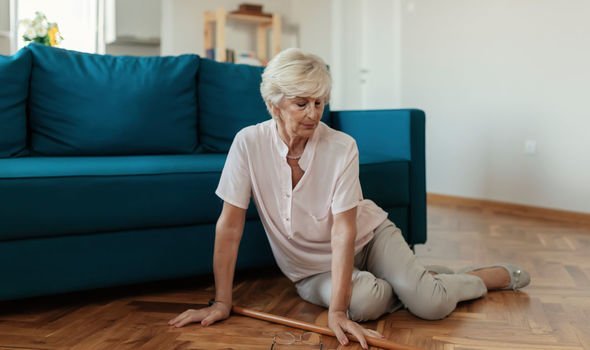
Parkinson disease causes physical symptoms at first. Problems with cognitive function, including forgetfulness and trouble with concentration, may arise later. As the disease gets worse with time, many people develop dementia. This can cause profound memory loss and makes it hard to maintain relationships.
Parkinson disease dementia can cause problems with:
- Speaking and communicating with others
- Problem solving
- Forgetfulness
- Paying attention
If you have Parkinson disease and dementia, in time, you likely won’t be able to live by yourself. Dementia affects your ability to care of yourself, even if you can still physically do daily tasks.
Experts don’t understand how or why dementia often occurs with Parkinson disease. It’s clear, though, that dementia and problems with cognitive function are linked to changes in the brain that cause problems with movement. As with Parkinson disease, dementia occurs when nerve cells degenerate, leading to chemical changes in the brain. Parkinson disease dementia may be treated with medicines also used to treat Alzheimer’s disease, another type of dementia.
Brian Grant: Staying Positive With Parkinsons
Brian Grant spent 12 seasons as a National Basketball Association player, playing for the Sacramento Kings, the Portland Trail Blazers, the Miami Heat, the Los Angeles Lakers, and the Phoenix Suns. As an NBA player, he was known for his positive team commitment as well as his work with disadvantaged children. According to an interview with ESPN, he was diagnosed with early-onset Parkinson’s disease in January 2009, following his retirement from professional basketball. He went on to found the Brian Grant Foundation, which is dedicated to raising awareness and inspiring those living with Parkinson’s disease to include exercise as medicine.
Freddie Roach: Boxing Trainer With Parkinson’s
Frederick “Freddie” Roach is a boxing trainer and former professional boxer. Bryant Gumbel included his story in the HBO series Real Sports, detailing Roach’s efforts to control his Parkinson’s disease with medication and continued work as a trainer. Roach, who began to show Parkinson’s symptoms over 20 years ago, trains world-famous boxers at the Wild Card Boxing Club in Hollywood, California, which he owns. His client list has included the likes of Amir Khan, Manny Pacquiao, Mark Wahlberg, and Georges St. Pierre.
Michael Richard Clifford: Parkinson’s In Space
“Everyone with PD handles it differently,” said Clifford in an interview with the Michael J. Fox Foundation. “Don’t let it get in the way of living. Life is too good. Remember, keep going — the sky’s the limit.”
Muhammad Ali: Parkinsons Diseaseindigo Cowley
Muhammad Ali was born January 17, 1942 in Louisville, Kentucky in the segregated south. He realized his talent for boxing at the age of twelve.
Ali worked hard and became a boxing champion of the world and a boxing gold medalist.
He was diagnosed with Parkinson’s Disease in 1984 at age 42.
Parkinson’s disease is a neuro-degenerative disorder. The cells involved in movement begin to due to the lack of dopamine is is transmitted to the cell. Patient’s loose the ability to control voluntary movement which causes symptoms like trembling and the slowing down of their body. There is currently no cure although treatment is available to lessen the affects.
He had just retired from boxing in 1981 after hard loses against a few of boxing’s finest competitors. It is thought that being hit so hard in the head in his boxing days could have assisted the disease develop.
He developed the tendency to tremble, which is common among Parkinson’s patients and it became difficult for him to speak.
There’s no specific test to diagnose Parkinson’s. Medical history and neurological examination are used to diagnose as well as noticing the two cardinal symptoms which are trembling and rigidity.
He never let the disease get the best of him or feel sorry for himself. After retirement he raised funds for the Muhammad Ali Center, a community center he made in his hometown of Louisville, Kentucky and supported the Make-a-Wish Foundation and the Special Olympics.
